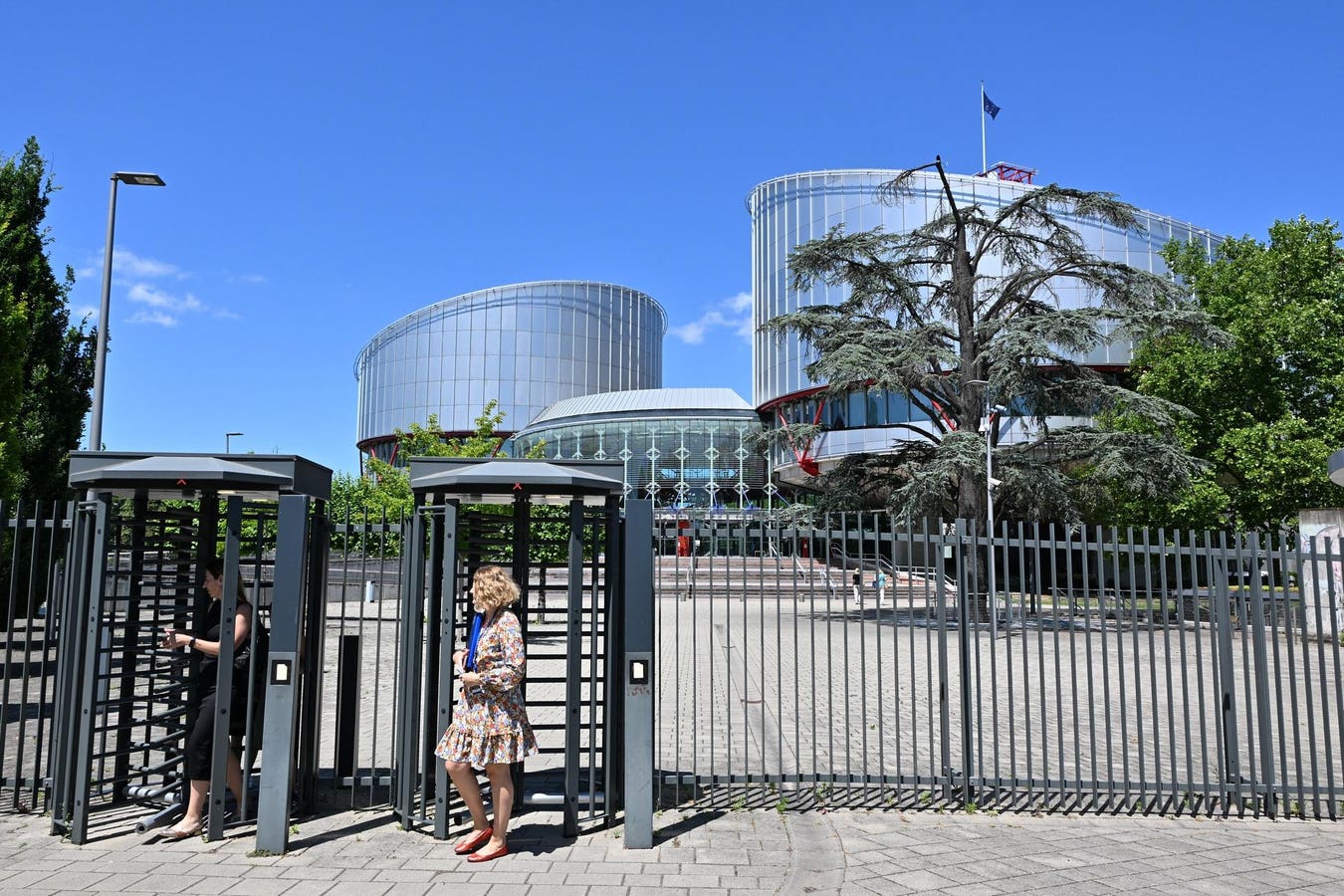General view of the European Court of Human Rights (ECHR) is seen in Strasbourg, France, on June 24, … More
On July 9, 2025, in the case of Ukraine and the Netherlands v. Russia, the Grand Chamber of the European Court of Human Rights (ECtHR) held Russia accountable for widespread and flagrant abuses of human rights arising from the conflict in Ukraine since 2014, in breach of the European Convention on Human Rights (ECHR). The judgment follows an application lodged by Ukraine and the Netherlands (State Parties to the Convention) against Russia (another State Party to the Convention at all relevant times), so-called an inter-State application. The ECtHR is an international court set up in 1959 to rule on individual or State applications alleging violations of the civil and political rights set out in the European Convention.
The case Ukraine and the Netherlands v. Russia concerns the conflict that began in eastern Ukraine in 2014 following the occupation of the Donetsk and Luhansk regions by pro-Russian armed groups, and escalated after Russia’s full-scale invasion of Ukraine in February 2022. The case also concerns the shooting down of flight MH17 over eastern Ukraine in summer 2014, killing all those on board, including many Dutch nationals.
The Court found that Russia was responsible for repeated human-rights violations over a period of more than eight years. This included indiscriminate military attacks; summary executions; torture, including rape as a weapon of war; unlawful and arbitrary detentions; intimidation and persecution of journalists and religious groups; looting and destruction of private property; and the organized removal of children to Russia and their adoption there. The Court also found that Russia was responsible for violating the right to life by shooting down flight MH17 and had added to the profound suffering of the crash victims’ next of kin by being uncooperative and obstructive in the context of international efforts to uncover the truth.
In its judgment, the Court emphasized that “the events in Ukraine are unprecedented in the history of the Council of Europe. The nature and scale of the violence as well as the ominous statements concerning Ukraine’s statehood, its independence and its very right to exist represent a threat to the peaceful co-existence that Europe has long taken for granted.” It further added that “this dangerous rhetoric has also on occasion been extended to encompass other Council of Europe member States, including Poland, Moldova and the Baltic countries. These actions seek to undermine the very fabric of the democracy on which the Council of Europe and its member States are founded by their destruction of individual freedoms, their suppression of political liberties and their blatant disregard for the rule of law. In none of the conflicts previously before the Court has there been such near universal condemnation of the ‘flagrant’ disregard by the respondent State for the foundations of the international legal order established after the Second World War.”
In relation to the use of sexual violence, the Court found that there is evidence of a widespread and systemic use of sexual violence by armed separatists and Russian troops, in respect of men and women, old and young (with documented victims ranging from four to 80 years old). The Court emphasized that “the evidence shows the extreme violence of the circumstances in which women were raped or sexually assaulted and the intent to terrorize, humiliate and debase them. The widespread rape of women and girls in occupied areas is in flagrant breach of Article 27 [Geneva Convention]
IV.” It added that “In addition to the impact on the direct victims, the raping of women and girls in the context of an armed conflict has also been described as a means for the aggressor to symbolically and physically humiliate the defeated men. Rape or the threat of rape is also used to drive communities off lands or to heighten terror during attacks. The evidence also attests to the horrific sexual violence frequently perpetrated upon male detainees. The sexual abuse, torture and mutilation of male detainees is often carried out to attack and destroy their sense of masculinity or manhood. Abuse and torture of female members of a man’s family in front of him is used to convey the message that he has failed in his role as protector. These forms of humiliation and violence take on powerful political and symbolic meanings.” The Court concluded that “sexual violence and rape was deployed in Ukraine following the February 2022 invasion as part of a military strategy to dehumanize, humiliate and break the morale of the Ukrainian population, as individuals and as a community, and to assert dominance over Ukrainian sovereign territory. The systematic rape of women as a weapon of war causes unthinkable physical, emotional and psychological suffering.”
In relation to the abduction of children, the Court concluded that, among others, it was “satisfied that the children’s removal from their homes, their separation from their parents and caregivers, their transfer to Russia and the absence of any steps by the Russian authorities to secure their reunification, while active arrangements were being made for their temporary or permanent placement in foster families or adoption, amounted to interferences with the children’s right to respect for their private and family lives, as guaranteed under Article 8 of the Convention.”
To make the conclusions, the Court took into account reports of reputable bodies, such as the U.N. Commission of Inquiry or the Office of the High Commissioner Human Rights. The findings of the Court, in addition to the several sources cited throughout, should help to neutralize Russia’s powerful propaganda machine trying to change the narrative around the war. As the evidence of the crimes committed by Russia is being put to legal test, across so many international, regional and domestic courts, Russia’s propaganda can only fail.




